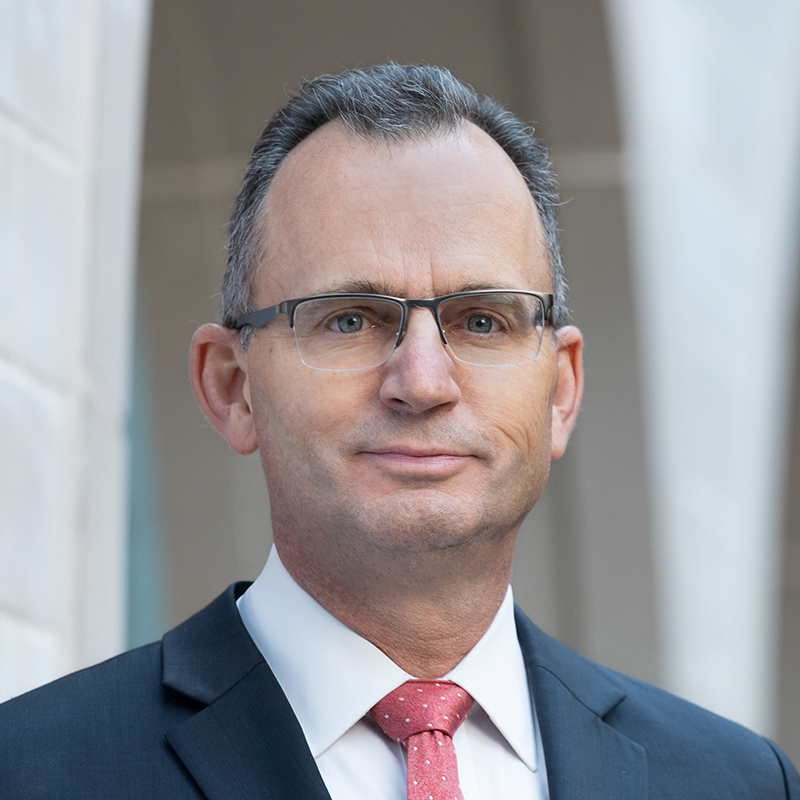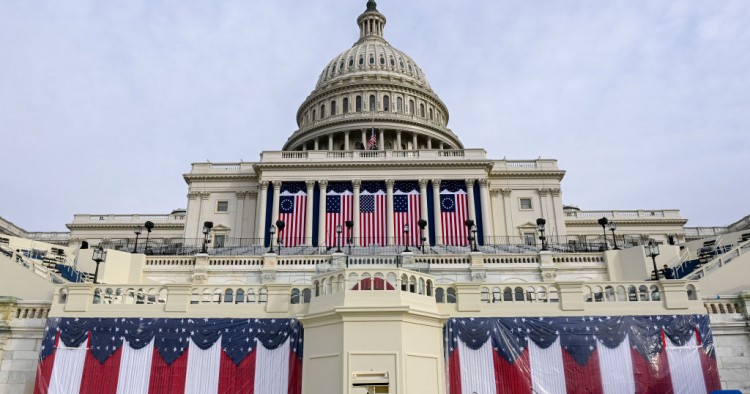Contents:
- Why the world watches on January 20
- Is Afghanistan headed toward a soft coup?
- Axis of convenience: Pakistan-Turkey-Azerbaijan trilateral meeting in Islamabad
- COVID chaos magnifies Lebanon’s suffering
Why the world watches on January 20
Paul Salem
President

The world will be riveted by the spectacle of tense presidential transition on Jan. 20. It will mark the worst of times, but also the best of times, for America’s democratic experiment. In 1860 the American republic came apart over the real and morally profound issue of slavery; in 2020 and 2021 it almost came apart as a result of a simple and common power grab by a corrupt and power-hungry leader refusing to leave office or accede to the will of the people. The latter crisis is familiar to populations the world over.
But the powerful positive example of the peaceful transition of Jan. 20 is that, despite the efforts of a powerful president, the support of a large cross section of the population, and a majority of one of the country’s main political parties, the institutions of democracy held, the people’s votes were counted, the courts defended the results fairly, and the would-be tyrant of a post-democratic America is being quietly ushered out the White House door.
Many have argued whether America’s brush with the demise of democracy and the rise of one-man rule will make it more, or less, credible in encouraging democracy around the world. Yes, America’s democratic record has been greatly tarnished, and it can no longer take the high road; but maybe that’s a good thing, as it will bring more humility and less “preachiness” to the endeavor of talking about democracy. However, America’s recent brush with tyranny, and the real risks and dangers that it brings, also gives it more authenticity and credibility when talking about the risks of dictatorship and the importance of democracy to audiences — both government and civil society — around the world. Democracy had become almost a rote slogan in American foreign policy; it has now regained its meaning and its urgency. And I dare say the majority of populations around the world are on the side of moving toward more democratic societies, even if the majority of rulers are not.
On a more pragmatic note, and as relates to U.S. foreign policy in the Middle East, the Biden administration inherits a particular legacy from the Trump administration. This includes a “maximum pressure” campaign against Iran, impactful attacks on some of its key military and nuclear officials, as well as breakthroughs in normalization between Israel and a number of Arab states. In the few weeks between the election and the inauguration, the GCC states have also papered over their internal differences, at least for now.
But Biden will face an Iran that has become more hard line, less trusting of negotiations with the U.S., more proactive in missile technology and ramping up enrichment cycles. Pressure and negotiations vis-à-vis Iran will also be hamstrung by the reality that Biden’s administration, like Trump’s, might be out in four years. The normalization agreements have also confirmed Benjamin Netanyahu’s and the Israeli right wing’s worst instincts: that they can have their settlements, annexations, and land grabs — and normalization too. Israel is already an apartheid state — as declared by Israel’s leading human rights organization, B’Tselem; Trump has dug Israel and the Palestinians deeper into that explosive trap. Biden and his team will have a difficult time helping encourage a future for the Palestinians and Israelis other than that of apartheid, occupation, and endless conflict.
But Biden brings a wealth of experience to the office, as well as top notch and heavily experienced foreign policy and national security officers to his team. In the Middle East their to-do list will include reviving and reinforcing the nuclear deal, engaging Iran in robust negotiations over its missile program and regional interventions, reviving the Israel-Palestine peace track, maintaining the fight against ISIS and al-Qaeda, and finding ways to end civil wars, at least those in Yemen and Libya. Washington will also be dealing with a wider Middle East groaning under the double effects of the COVID-19 pandemic and its massive socio-economic consequences.
Certainly, most of Biden’s top priorities will be understandably domestic. And in foreign policy the higher priorities will be rebuilding global efforts like the Paris climate accord, combatting the pandemic and its effects, rebuilding partnerships with allies in Europe and Asia, and focusing on global challenges from China. But nevertheless, the Middle East will take at least part of this administration’s foreign policy bandwidth. Biden will have a very capable team in place. Let’s hope that his administration can make progress in de-escalating regional conflict, helping societies dig out from under the weight of the pandemic and socio-economic regression, while at the same time highlighting the importance of good governance, human rights, accountability, and the rule of law to societies that want to have more democratic governance institutions — such as those that saved America from tyranny in January 2021 — not the political institutions of Russia or China, which seem all too familiar in the Middle East.
Follow on Twitter: @paul_salem
Is Afghanistan headed toward a soft coup?
Marvin G. Weinbaum
Director, Afghanistan and Pakistan Studies

Amid frustration with the lack of progress in Afghan peace talks, U.S. special envoy to the talks Zalmay Khalilzad traveled to Kabul last week and reportedly presented Afghan politicians with the option of forming a system-changing interim government with the Taliban. The U.S. initiative took place against a backdrop of rapidly mounting violence nationwide and growing displeasure domestically with President Ashraf Ghani among influential elements of the political elite. They accuse him of impeding the peace talks and acting as a dictator. The president, who refused to meet with Khalilzad, reacted bitterly to his visit, declaring that no political system but an Afghan republic is acceptable. He rejected any deal with the Taliban that would bring about what he called the “peace of the graveyard.”
Formation of an interim government with the Taliban would spell the end of the American- sponsored liberal Afghan constitution. The American ambassador in Kabul has denied that the U.S. is in fact advocating an interim government. But the U.S., impatient to achieve an early cease-fire and to accelerate the peace process, has quietly probed Taliban leaders for their interest in an interim, inclusive power-sharing arrangement. The U.S. would prefer to have the Taliban agree to be fitted within the present governing framework. Instead, the Taliban has placed high on its agenda in Doha the dissolution of the current regime in the design of a future government.
Privately the Taliban has shared its ideas of an acceptable interim government. In place of a president as head of state, the Taliban is believed to have in mind a small executive council evenly divided between its representatives and Afghans representing the country’s major ethnic constituencies. This ruling body would be expected to remain in place until the creation of a new Islamic system of government. Taliban interlocutors have always shown their lack of interest in merely fiddling with the present constitution or in any system that, based on popular will, provides for elections, a parliament, and political parties. The country’s rulers would instead draw their legitimacy by acting in concurrence with sharia law as interpreted by a body of recognized religious scholars.
If there is a soft coup in process, its success may depend on whether the U.S. and other international players are prepared to throw their full weight behind a political transition. A Biden administration might be expected to tie its support to the Taliban’s acceptance of the retention, for at least a time, of an American counterterrorism force. The removal of the elected government would almost inevitably tear Afghanistan’s ruling class apart and hasten the Taliban’s monopoly on power, either through political or military means.
Follow on Twitter: @mgweinbaum
Axis of convenience: Pakistan-Turkey-Azerbaijan trilateral meeting in Islamabad
Shanthie Mariet D'Souza
Non-resident Scholar

More than three years after their Nov. 30, 2017 meeting in Baku, the foreign ministers of Azerbaijan, Pakistan, and Turkey met for the second time in Islamabad on Jan. 13, 2021. The trilateral ended with the three nations signing the Islamabad Declaration and affirming a common vision on "foreign-sponsored acts of terrorism" and “escalating trends of Islamophobia.” It was a renewed attempt by the three Muslim-majority nations at forming a coalition based on convergence on political issues and projecting it as the mouthpiece for the Muslim world. However, there are several inherent contradictions in this sort of axis formation that may prevent it from assuming a serious role.
One of the primary concerns of this coalition is India’s decision to abolish the special status of Kashmir in 2019. Pakistan’s allegation of large-scale human rights violations by India in Kashmir has not found much reception around the world. It is unlikely that much would change by the joint declaration adopted by these three countries. Strangely, both Pakistan and Turkey choose to remain silent on the plight of Muslims in China’s Uighur region. Turkey has even been accused of agreeing to deport Uighur Muslims to China to reportedly access COVID-19 vaccines.
Convergence of opinion on several key issues has been the basis for this emerging coalition, which aims at expanding into military and economic cooperation. Both Pakistan and Azerbaijan have come to the defense of Turkey on the Cyprus issue. The provision of Turkish Kamikaze drones for use against Armenian forces in the Nagorno-Karabakh region in 2020 has been highlighted by the Turkish official media as an example of decisive bilateral military cooperation that aided Azerbaijan’s success against Armenia. However, it also remains a fact that Baku received extensive Israeli military assistance in its campaign against Armenian forces.
Lack of Muslim solidarity on key issues is evident on the global stage. Even the Organization of Islamic Cooperation (OIC), by far the largest Muslim organization in the world, has struggled to keep its flock together and come up with a united stand on issues that affect Muslims. Under such circumstances, an attempt at alliance formation by Azerbaijan, Pakistan, and Turkey is noteworthy but lacks the strength to deal with their own internal paradoxes. Beyond Islamophobia and contentious bilateral issues, a concerted strategy of building on their trade and economic potential could be a useful basis for an enduring coalition.
Follow on Twitter: @shanmariet
COVID chaos magnifies Lebanon’s suffering
Christophe Abi-Nassif
Director, Lebanon program

Hit by record daily COVID-19 cases, Lebanon entered its most stringent lockdown since the beginning of the pandemic last week. The Lebanese government is now reaping what it sowed following lax public health restrictions over the holiday period.
Aimed at easing economic pain and attracting much-needed dollars from visiting expatriates, this chaotic leniency has imposed unwarranted strain on the health care system and may in fact further depress economic activity given the span and severity of the lockdown. Lebanese hospitals are operating beyond capacity and most have been rationing ICU beds and turning cases away. Oxygen tanks, now a rare commodity, are selling for up to $2,000 on the black market — the equivalent of 26 months of minimum wage at the current Lebanese pound exchange rate.
The Lebanese COVID crisis is tragic not only because of its human toll, but because of how unnecessary and avoidable it was. By learning from Italy’s failed response to the pandemic, adopting a firmer stance vis-à-vis public disregard of safety measures, and engaging in more aggressive vaccine procurement efforts, Lebanese authorities could have more aptly prevented and contained the crisis.
As it stands, the weeks ahead are paved with logistical and political hurdles on the path to vaccination. Notorious for endemic electricity and fuel crises, Lebanon may struggle to adequately store and secure the 2.1 million doses of the Pfizer vaccine at the required temperature of -70°C when they begin rolling out in February. Flashbacks to tons of poorly stored and damaged flour donated by Iraqi authorities after the Beirut port explosion help fuel such concerns.
More importantly, in a country where hiring at even the lowest levels of government is subject to patronage and sectarianism, vaccine distribution risks optimizing for “sectarian balance” rather than urgent medical need. The World Health Organization’s warning against a “catastrophic moral failure” because of unequal vaccine distribution will indeed take on an additional dimension in the Lebanese case. Furthermore, an intrusion of geopolitics and ideology into health care by virtue of influential domestic political leaders refusing to take American-manufactured vaccines will hinder or further delay mass vaccination efforts.
At a time when the Lebanese people are in dire need of a glimmer of hope, the COVID resurgence and its mishandling come as yet another unfortunate reminder of the precarity of Lebanese governance.
Follow on Twitter: @chris_abinassif
Photo by Jonathan Newton /The Washington Post via Getty Images
The Middle East Institute (MEI) is an independent, non-partisan, non-for-profit, educational organization. It does not engage in advocacy and its scholars’ opinions are their own. MEI welcomes financial donations, but retains sole editorial control over its work and its publications reflect only the authors’ views. For a listing of MEI donors, please click here.













